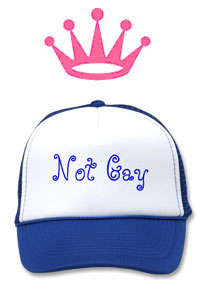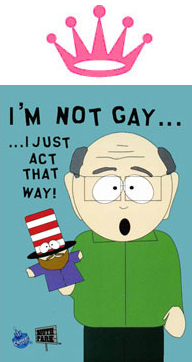The Bible and Homosexuality 101

As some of you readers may know, a certain person, who shall remain nameless, has been harassing Best Gay Chicago, trying to shove bible quotes down our throats. He has actually been calling our office 20-30 times a day, and the police are now involved. His own church, urged us to get a restraining order.
The postings have generated lots of comments – and someone from PFLAG Detroit posted this:
The Bible has long been used by
society to discriminate against, and persecute gays and lesbians. Careful
study, however, reveals that while the Bible does condemn homosexual and
heterosexual cult prostitution, it says nothing about loving committed
homosexual relationships. Jesus himself said nothing about homosexuality,
which leads many to believe it was not one of his main concerns.
Unfortunately, many passages from the Bible are often taken out of
context, or interpreted without consideration for the cultural aspects
associated with the time period in which they were written. To emphasize
this point, consider the following sentence: “He was such a neat
man.” In order to understand the writers meaning, you must consider
the time period in which it was written. If this sentence were written in
the 1900’s it would be assumed that the word “neat”, was a
reference to the man’s tidiness. If it were written in 1996, however, the
word “neat” could be interpreted to mean both tidy, or the
presence of admirable qualities.
Many versions of the Bible exist. Each reflects the limited scientific
knowledge, personal beliefs of its translators, and the social beliefs of
the time period in which it was translated. Personal biases, and societies
prejudices have unavoidably distorted the Bible’s many translations. In
addition, it is sometimes difficult to find a current word that accurately
defines the Hebrew or Greek term in question. Unfortunately, this has
resulted in the mistranslation of some of the more ambiguous text
contained in the Bible.
Perhaps the two most widely abused verses used to condemn homosexuality
come from Leviticus.
You shall not lie with man as one lies with a women; this is an
abomination.
Leviticus 18:22
If a man also lie with mankind as he lieth with a woman, both of them
have committed an abomination; they should surely be put to death.
Leviticus 20:13
First of all, the Holiness Code of Leviticus was written primarily as a
ritual manual for Israel’s priests. Christians today are not bound by the
rules and rituals described in Leviticus. (Galatians 3:22-25) If
Christians today insist on using this passage to condemn homosexuality,
then they are also bound by the other rules and rituals described in
Leviticus.
Among other things, the Holiness Code of Leviticus prohibits:
Sexual intercourse during a women’s menstrual cycle
Tattoos
Wearing certain types of jewelry
Eating certain kinds of meat
Wearing clothing made from blended textiles (cotton-polyester
blends)Cross-breeding livestock
Sowing a field with mixed seed
Eating or touching the dead flesh of pigs, rabbits, & some
forms of seafoodMen cutting their hair or shaving their beards
The Holiness Code also endorses polygamy and requires Saturday to be
reserved as the Sabbath. Obviously, it is unfair to use these passages to
condemn homosexuality, while ignoring the fact that most Christians do not
follow the rest of the rules and rituals outlined in the Holiness Code of
Leviticus.
It should also be noted that the word abomination was translated
from the Hebrew word toevah and means something found detestable by
God because it is unclean, disloyal, or unjust. The term abomination
is generally associated with idolatry and the Canaanite religious practice
of cult prostitution. (Ezekiel) Given toevah’s strong association
with cult prostitution it is unlikely that this passage applies to loving
responsible homosexual relationships.
PFLAG Detroit does an awesome job analyzing the bible and I encourage you to take a look. It gives us good ammunition, for when we are attacked by those preaching the bible.





































